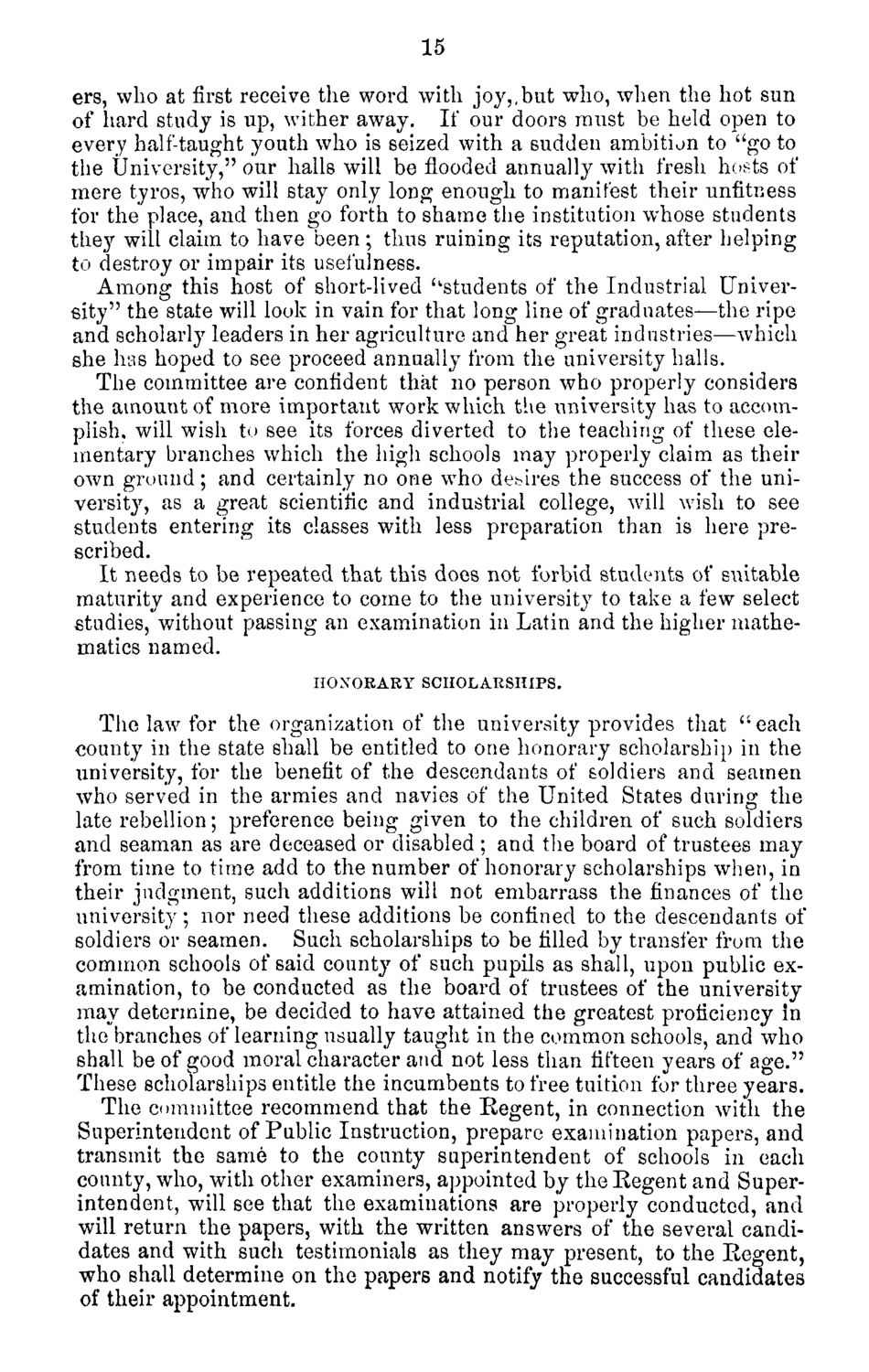| |
| |
Caption: Course Catalog - 1867
This is a reduced-resolution page image for fast online browsing.

EXTRACTED TEXT FROM PAGE:
15 ers, who at first receive the word with joy,,but who, when the hot sun of hard study is up, wither away. If our doors must be held open to every half-taught youth who is seized with a sudden ambition to "go to the University," our halls will be flooded annually with fresh hosts of mere tyros, who will stay only long enough to manifest their unfitness for the place, and then go forth to shame the institution whose students they will claim to have been ; thus ruining its reputation, after helping to destroy or impair its usefulness. Among this host of short-lived "students of the Industrial University" the state will look in vain for that long line of graduates—the ripe and scholarly leaders in her agriculture and her great industries—which she has hoped to see proceed annually from the university halls. The committee are confident that no person who properly considers the amount of more important work which the university has to accomplish, will wish to see its forces diverted to the teaching of these elementary branches which the high schools may properly claim as their own ground; and certainly no one who de&ires the success of the university, as a great scientific and industrial college, will wish to see students entering its classes with less preparation than is here prescribed. It needs to be repeated that this does not forbid students of suitable maturity and experience to come to the university to take a few select studies, without passing an examination in Latin and the higher mathematics named. HOXOEAEY SCHOLARSHIPS. The law for the organization of the university provides that "each county in the state shall be entitled to one honorary scholarship in the university, for the benefit of the descendants of soldiers and seamen who served in the armies and navies of the United States during the late rebellion; preference being given to the children of such soldiers and seaman as are deceased or disabled ; and the board of trustees may from time to time add to the number of honorary scholarships when, in their judgment, such additions will not embarrass the finances of the university; nor need these additions be confined to the descendants of soldiers or seamen. Such scholarships to be filled by transfer from the common schools of said county of such pupils as shall, upon public examination, to be conducted as the board of trustees of the university may determine, be decided to have attained the greatest proficiency in the branches of learning usually taught in the common schools, and who shall be of good moral character and not less than fifteen years of age." These scholarships entitle the incumbents to free tuition for three years. The committee recommend that the Regent, in connection with the Superintendent of Public Instruction, prepare examination papers, and transmit the same to the county superintendent of schools in each county, who, with other examiners, appointed by the Eegent and Superintendent, will see that the examinations are properly conducted, and will return the papers, with the written answers of the several candidates and with such testimonials as they may present, to the Eegent, who shall determine on the papers and notify the successful candidates of their appointment.
| |